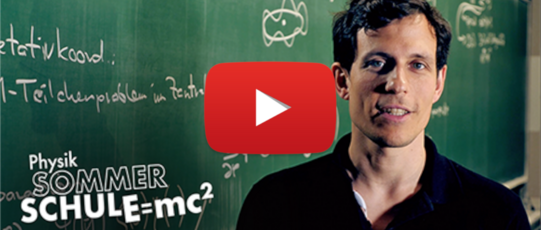Grammar School
Programme Contents
The Teaching Degree at Grammar Schools (state examination) programme comprises:
- the educational science degree programme
- the in-depth study of two teaching subjects
The following insights, skills, abilities and knowledge are taught during the course of the degree programme:
The degree programme explains the fundamentals and methods of physics and the history of its problems. In addition, basic knowledge of the theoretical understanding of physics and an insight into the issues of modern physics are presented.
Learning Objectives
The aim of the programme is to provide students with in-depth knowledge of experimental physics, in particular experimental methods and basic experimental set-ups, basic knowledge of atomic/molecular physics, nuclear/particle physics, solid state physics and theoretical physics, in particular classical mechanics, electrodynamics, thermodynamics and quantum mechanics, provide an insight into the history of physics, with particular emphasis on the interrelationships between physics and other sciences, Technology, society and the environment, the subject didactic knowledge, in particular the ability to elementalise physical facts, taking into account the age-related ability to abstract, knowledge of physical teaching and working materials and the ability to use them according to didactic aspects, the ability to demonstrate scientific ways of thinking and working using suitable content.
- Description of natural processes under precisely defined, reproducible conditions (experimental observation)
- Gaining knowledge by creating theoretical models for the quantitative description of observation using the language of mathematics
- Nature as a whole, from the description of the universe as a whole to the elementary building blocks from which all known matter is constructed
- from basic research to applied research on specific problems, which very often also originate from non-technical areas
- Industrial research and development centres
- Teaching at schools, colleges and universities
- both in companies and as a self-employed IT expert
- Patents (law firms and patent offices)
- Management consultancies, financial service providers, insurance companies and banks
- Public service
Structure:
1. Study of two specialised subjects (102 ECTS points each)
- Specialised scientific studies (92 ECTS points)
- Specialised didactic studies (10 ECTS points)
2. Educational science programme (35 ECTS points)
- Pedagogical-didactic school internship (max. 4 ECTS points)
3. Free area (max. 15 ECTS points)
- interdisciplinary
- specialised
4. Written term paper (10 ECTS points)
| Module | Abbreviation | ECTS-Points |
| Foundations of Experimental Physics | ||
| Classical Physics 1 (Mechanics) | 11-E-M | 8 |
| Classical Physics 2 (Heat and Electromagnetism) | 11-E-E | 8 |
| Optics and Waves | 11-L-OW | 7 |
| Advanced Experimental Physics | ||
Modern Physics 1 | 11-L-M1 | 7 |
Modern Physics 2 (Molecule and Solid State Physics) | 11-L-M2 | 5 |
Modern Physics 3 (Nuclear, Particle and Astrophysics) | 11-L-M3 | 5 |
General Concepts of Physics | 11-L-GKP | 6 |
| Theoretical Physics | ||
| Theoretical Physics 1 for Pre Service Teachers | 11-L-T1 | 7 |
| Theoretical Physics 2 for Pre Service Teachers | 11-L-T2F | 7 |
| Mathematical Methods | ||
| Mathematical Methods of Physics | 11-M-MR | 6 |
| Laboratory Course I | ||
| Laboratory Course Physics A (Mechanics, Heat, Electromagnetism) | 11-P-LA | 2 |
Data and Error Analysis | 11-P-FR1 | 2 |
| Laboratory Course Physics B (Electricity, Circuits, Atomic and Nuclear Physics) | 11-P-LB | 5 |
Advanced Laboratory Course | 11-P-LFP | 5 |
| Laboratory Course II | ||
| Demonstration Laboratory Course 1 | 11-P-DP1 | 5 |
| Practical Training in Student Lab/Demonstration Laboratory Course 2 | 11-P-LLL-DP2 | 7 |
The course of study shown (Download as pdf) is a recommendation resulting from the logical sequence of module topics.
You are free to organise your studies according to your own wishes, bring certain modules forward or take them later, e.g. after a semester abroad.










